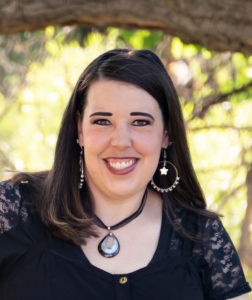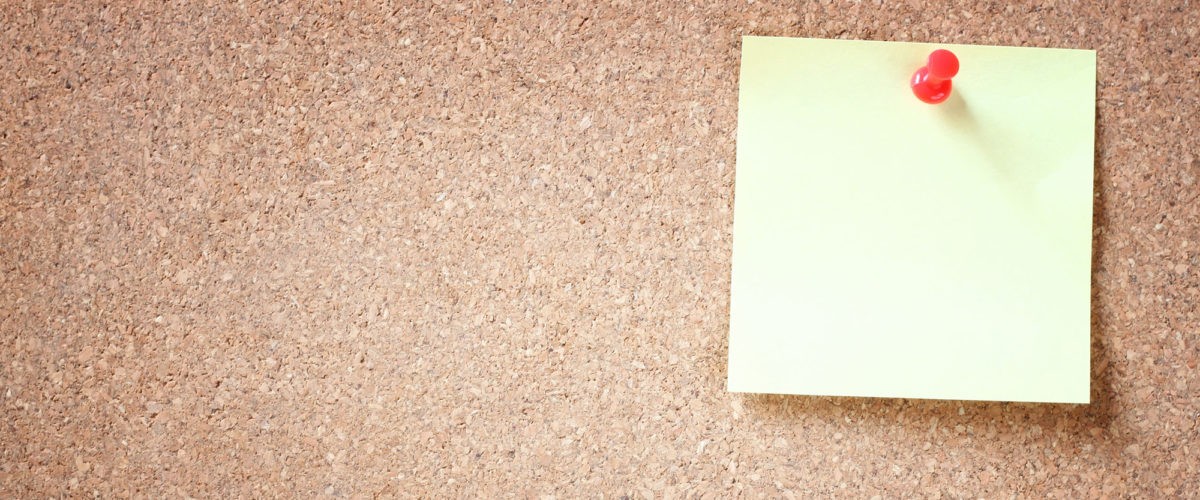I currently lead a national book club of approximately 60 LGBTQ people, parents, pastors and allies — all of whom are in various stages of deconstruction. We seek to cultivate safe community with one another in a private space so that we can learn and grow together. Part of the way we do that is by reading one affirming book a month, having discussions about it, and then hosting a live dialogue with the author. Last month we had the privilege of reading Shameless and interviewing Nadia Bolz-Weber to discuss shame, sex and our bodies.

Amber Cantorna
Toward the end of Nadia’s book, she recounts an experience at the church she led (at the time she was pastor of House for All Sinners and Saints, but has since resigned from that position) in which she invited each person to consider the question, “What is the thing I most often think to myself, about myself?” She then asked each person to write their answer on a sticky note and place it on a whiteboard. After seeing the gut-wrenching messages people had internalized, Nadia ended up taking them all outside and burning them as a symbol of releasing these toxic thoughts from people’s hearts.
This story resonated so much with those in my group that someone reached out to me to ask if we could do the same. So I invited anyone who wanted to participate to answer that same question and email it to a confidential inbox. As the “post-its” started coming in, I noticed a very consistent and rather disturbing theme: Who I am is not good enough. “I’m not good enough to be smart.” “I’m not good enough to find happiness.” “I’m not good enough to feel love.” “I’m not good enough to achieve that goal.”
I am not good enough.
This ignited both sorrow and curiosity in me. What is it about our culture and the way we perceive ourselves that makes us feel as if we are ever striving for something we never will achieve? Does it come from our upbringing? Possibly. Does it stem from insecurity? Maybe. Does it grow from the standards that are put upon us by society? For sure.
The constant expectation to climb the corporate ladder, to be independent, to be successful, to be thin, to be rich, to be educated, to be domestic — all these pressures lead us to set a bar for ourselves that somehow is always in sight, yet is forever just beyond our reach. As a result, we feel like the opposite of whatever quality we need to achieve said goal. If it is wealth, then I’m not working hard enough. If it is respect among a certain peer group, then I’m not smart enough. If it is beauty, then I am not thin or tall enough. And on and on it goes.
“How do we silence the voices that leave us ever falling short and instead tap into a place of peace, acceptance and love for who we are right now?”
How do we combat this narrative of not being good enough? How do we silence the voices that leave us ever falling short and instead tap into a place of peace, acceptance and love for who we are right now?
Let’s take a journey back to the story of creation — the very first story ever told in the Bible. In it, it is said that God begins by making and molding things: light and dark, water and land, plants, stars, birds, whales, cheetahs, lambs, gazelles. And after each day of creativity and crafting, God looks at what God has created, and calls it “good.”
But God saved the best for last. Like the “big gift” at Christmas, or the long-awaited reward for a job well done, on the final day God decided that majestic mountains and roaring lions and playful dolphins weren’t enough. God wanted something that reflected God’s likeness. Something to inhabit the essence of God on earth. So God created a human — fashioning this human to mirror the image of God.
One account of the creation story says God created them male and female (not male or female) which from the beginning puts gender on a spectrum, not a binary, creating inclusion from the time of creation for trans and non-binary people. The second creation account says that God first created a genderless being (Adam is a genderless word for “from the earth”) and from that being, created a second being.
Whether God created two beings from the get-go or crafted one out of the other isn’t really the point. The point is that God valued diversity (which is evident by the vast varieties of species God created) and that these humans bear the very resemblance and DNA of God’s self. And after that, God looked at these beautiful, intricate, mind-blowing, amazing human beings and said they were “very good.” Not just good. Not kind of good. Not sort of good, but still a little lacking. Not good, but not quite good enough. Very good.
“God never looks at you and thinks, ‘You know, that one’s not quite good enough.'”
You are very good. Inherently, by nature, by design, from creation: very good. So stop worrying about who’s ahead or who’s behind you. Stop measuring your worth by your achievements. Stop comparing your anatomy, your physical or mental ability, or your desires with those around you and start loving who you are.
Learn to fall in love with your body, your mind, your soul, your very self. Because when God looks at you, God does not see failure. God never looks at you and thinks, “You know, that one’s not quite good enough. Think I could have done better with that one.” No, God sees beauty and life and radiance and magic and utter perfection. Being made in the image of God, how can we be anything else?
So whatever it is that you keep thinking to yourself about yourself; whatever lie feels ingrained in your psyche, whatever standard or expectation keeps taunting you into believing a falsehood about your inherent worth … write it on a sticky note, take it outside with a lighter, and burn that shit up, because who you are in the eyes of God, is very good.
Amber Cantorna grew up in the deeply conservative evangelical culture of Focus on the Family and now lives with her wife in Denver, where she advocates for equality everywhere. She is a national speaker, the author of Refocusing My Family and Unashamed: A Coming Out Guide for LGBTQ Christians, and host of the Unashamed Book Club. Follow her on Facebook, Twitter, and Instagram and learn more about her work at AmberCantorna.com.
Related articles:
Lies we believe about ourselves and our bodies
Repressing my sexual orientation cost me my health — permanently | Opinion by Amber Cantorna


